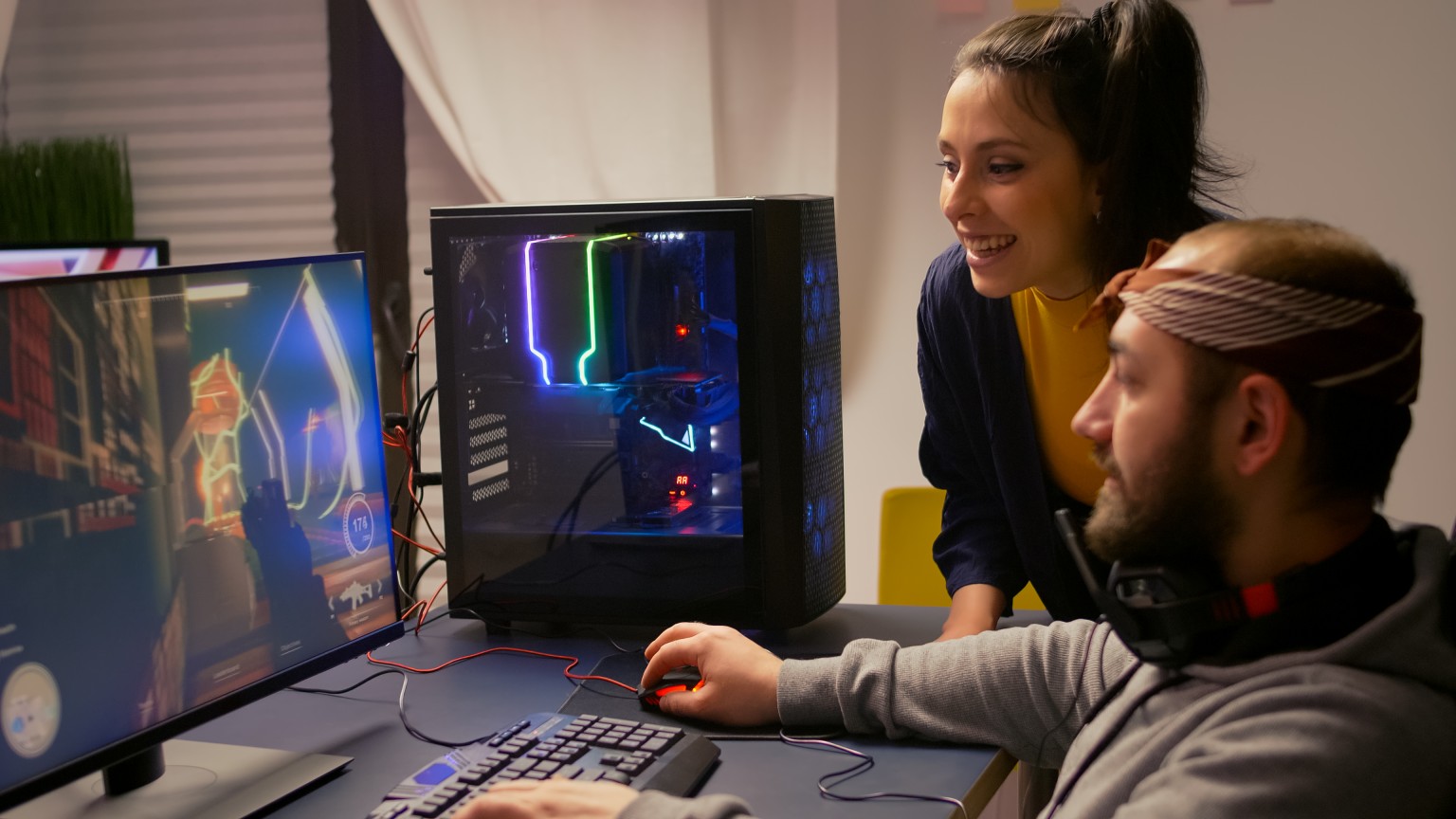Revolutionizing Game Development: Technology and Trends Shaping the Future

Game development is one of the most dynamic and fast-evolving sectors within the entertainment industry. From pixelated graphics of early arcade games to lifelike 3D worlds powered by cutting-edge engines, the journey of game development is a testament to the synergy between creativity and technology.
As gamers demand increasingly immersive and complex experiences, developers face challenges in production, collaboration, and scalability. However, technology is stepping in to empower developers, streamline workflows, and unlock new creative possibilities. This blog explores the challenges, innovations, and future trends in game development.
1. Rising Development Costs
High expectations for detailed graphics, expansive worlds, and engaging gameplay mechanics demand significant investment in talent, technology, and time.
2. Complex Production Pipelines
Modern game development involves multi-disciplinary teams working on art, programming, design, and sound. Managing these workflows can be overwhelming without the right tools.
3. Ensuring Cross-Platform Compatibility
With players spread across consoles, PCs, and mobile devices, ensuring compatibility across platforms is both time-consuming and technically demanding.
4. Talent Shortages and Global Collaboration
Game development often requires specialized skills, such as animation or AI programming. Additionally, remote collaboration across time zones adds layers of complexity.
5. Increasing Competition
With thousands of games launched annually, standing out in a saturated market requires exceptional quality and innovative marketing.
1. Game Engines: The Heart of Modern Development
Game engines like Unity and Unreal Engine provide developers with powerful tools to create and optimize games.
Unity: Renowned for its cross-platform capabilities and ease of use, Unity is popular among indie developers and mobile game creators.
Unreal Engine: Known for its photorealistic graphics and robust VR/AR support, Unreal is a favorite for AAA titles and cinematic experiences.
2. AI in Game Development
Artificial intelligence is transforming various aspects of game development.
Procedural Content Generation: AI tools like Promethean AI generate realistic environments and assets automatically, saving hours of manual labor.
Game Testing: AI-driven bots simulate gameplay to identify bugs and optimize performance.
Intelligent NPCs: AI enhances the behavior and decision-making of non-player characters, creating more engaging experiences.
3. Cloud-Based Collaboration Tools
Remote work is now the norm in game development, and cloud platforms are essential for seamless collaboration.
Perforce Helix Core: A version control system that enables teams to collaborate on large files and complex projects efficiently.
ShotGrid (formerly Shotgun): A project management tool tailored for game development, offering task tracking and review workflows.
4. Real-Time Ray Tracing
Real-time ray tracing, powered by GPUs like NVIDIA RTX, enables developers to create lifelike lighting, shadows, and reflections in games.
Applications: Titles like Cyberpunk 2077 and Minecraft RTX have showcased the potential of real-time ray tracing in elevating visual quality.
5. Virtual and Augmented Reality (VR/AR)
VR and AR are pushing the boundaries of immersive gaming.
VR Game Development: Platforms like Oculus SDK and SteamVR provide the tools needed to create engaging VR experiences.
AR Game Development: ARKit (Apple) and ARCore (Google) enable developers to integrate augmented reality elements into mobile games.
1. Fortnite and Unreal Engine
Epic Games’ Fortnite leverages Unreal Engine to deliver seamless updates, stunning visuals, and cross-platform gameplay. The engine’s scalability has allowed Fortnite to remain relevant across generations of devices.
2. No Man’s Sky and Procedural Generation
Hello Games used procedural generation to create the vast, explorable universe of No Man’s Sky, with over 18 quintillion unique planets—an impossible feat using manual design alone.
3. Among Us and Unity
Indie hit Among Us used Unity to create a cross-platform experience that could be rapidly updated and scaled as its player base grew exponentially.
1. Metaverse Integration
Game worlds are evolving into social spaces where players can interact, trade, and even create. Platforms like Roblox and Decentraland are paving the way for metaverse-driven game design.
2. Blockchain and NFTs in Gaming
Blockchain technology is enabling decentralized economies within games, while NFTs allow players to own unique in-game assets.
3. AI-Generated Games
Future tools will enable developers to create entire games using AI, from level design to character animation, dramatically reducing development times.
4. Hyper-Realistic Graphics
The next generation of game engines will leverage AI, machine learning, and ray tracing to push graphics closer to reality than ever before.
5. Sustainable Game Development
As the gaming industry grows, developers are focusing on sustainability, using energy-efficient tools and cloud infrastructure to reduce their carbon footprint.
Here are some standout SaaS tools transforming the game development process:
Unity: Cross-platform game engine with extensive resources for indie and AAA developers.
Unreal Engine: High-performance engine known for its photorealistic capabilities.
ShotGrid: Project management and asset tracking tailored for game studios.
Helix Core: Version control for large files and complex game projects.
Promethean AI: Procedural generation for game environments and assets.
Game development is at the forefront of innovation in the entertainment industry. With the integration of AI, cloud tools, and cutting-edge engines, developers are not just creating games—they’re building worlds, communities, and experiences that redefine how we engage with digital content. As technology continues to evolve, the possibilities for game development are limitless.
For developers, studios, and publishers, the message is clear: Stay ahead by embracing the tools and trends shaping the future of gaming.